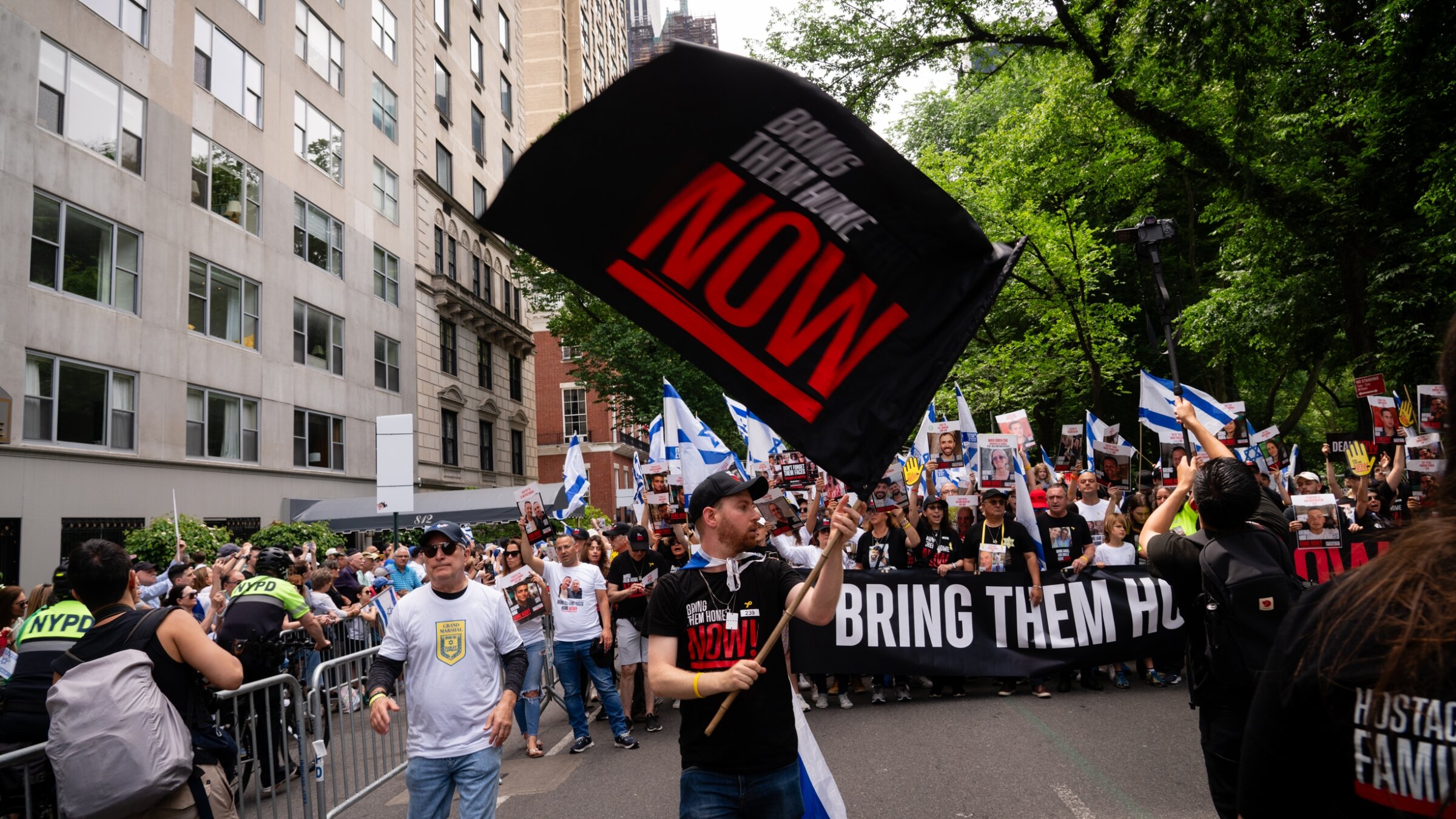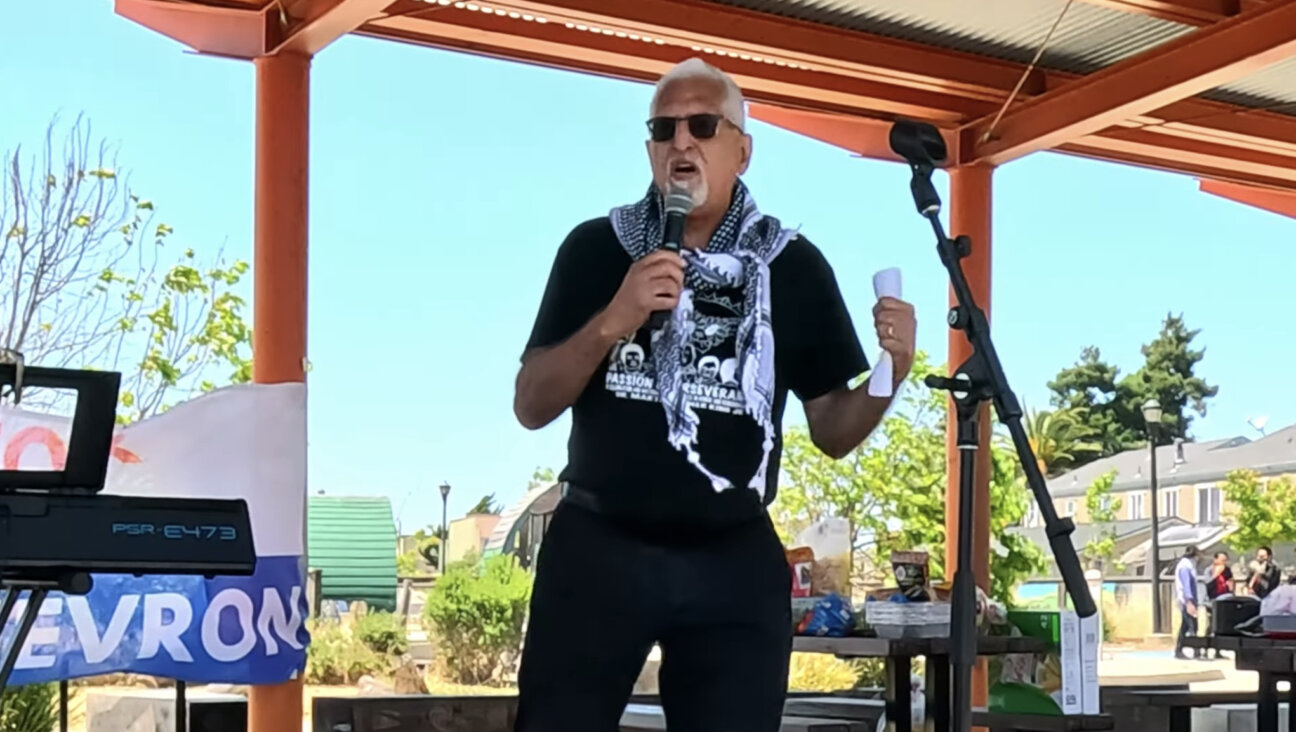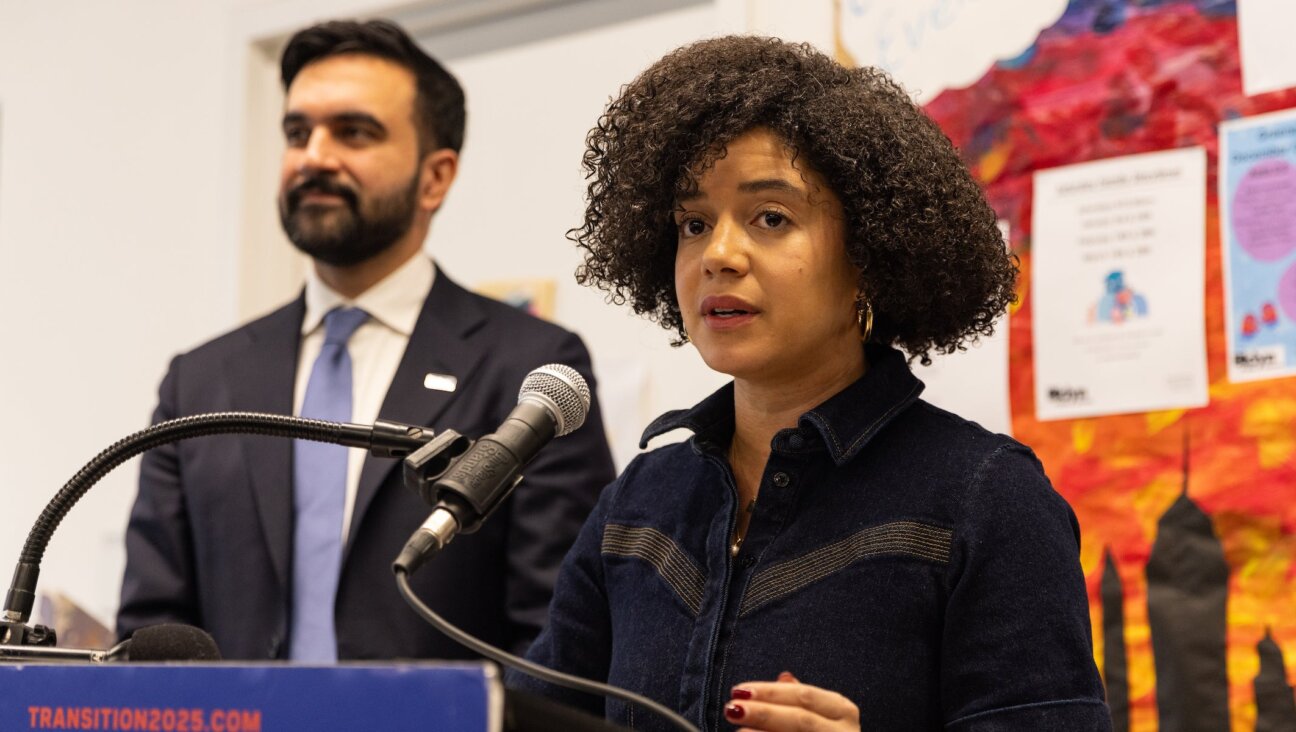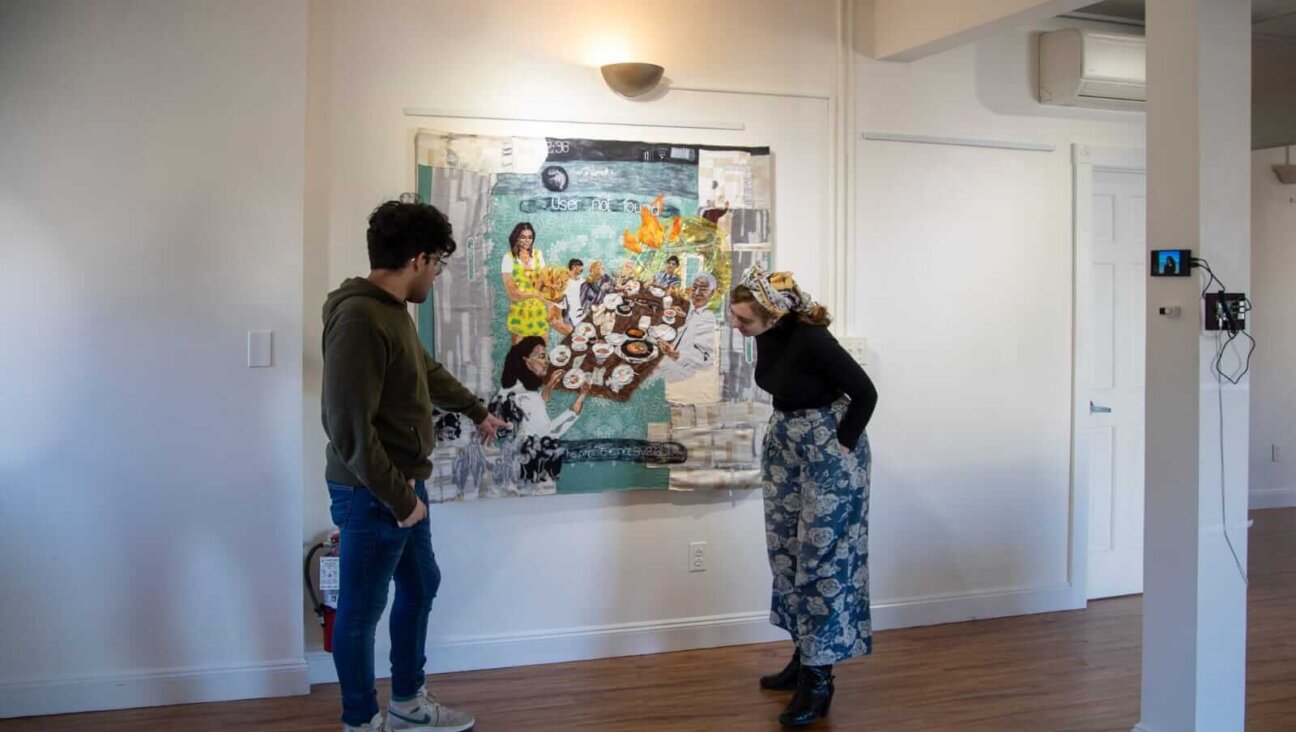Dozens of NYC rabbis urge major Jewish group to support ceasefire and hostage deal
Sixty-three local rabbis and cantors signed a letter from liberal rabbinic group T’ruah calling for UJA-Federation of NY to publicly support a ceasefire deal in the Israel-Hamas war.

Marchers call for the release of hostages in Gaza at the annual Israel parade in New York City, June 2, 2024. (Luke Tress)
(New York Jewish Week) — Dozens of local rabbis have signed a letter demanding that the UJA-Federation of New York publicly support a ceasefire deal in the Israel-Hamas war that would free Israeli hostages.
The letter was sent last week by T’ruah, a liberal rabbinic group that has for months called for a ceasefire and hostage release deal. It was addressed to UJA CEO Eric Goldstein and Linda Mirels, the group’s president.
“The hostages need your voice and your influence,” said the letter, signed by 63 rabbis and cantors. Referring to Hamas’ recent murder of six Israeli hostages in Gaza, the letter added, “This week, we have seen the tragic consequences of [Israeli Prime Minister Benjamin] Netanyahu’s recalcitrance in finding a deal.”
The letter comes as protests in support of a deal, and against Netayahu, have grown in Israel following the hostages’ murder, even as negotiators say the chances of reaching an agreement are slim. It is one of several efforts to get American Jewish groups to support a ceasefire deal, and argues that in taking that position, UJA would be aligned with the majority of Israelis and the Hostages and Missing Families Forum, the main group representing hostage families.
“UJA has been at the forefront of saying ‘Bring them home,’ and has been a sponsor of a number of vigils and rallies,” said Rabbi Jill Jacobs, T’ruah’s CEO. “But they have not said what is actually necessary to bring them home, which is a deal which Prime Minister Netanyahu is continuously torpedoing.”
Hamas terrorists abducted 251 hostages on Oct. 7. During a truce in November, Hamas released more than 100 civilians in exchange for hundreds of Palestinian security prisoners, which would also happen under a proposed ceasefire now. Other captives, dead and alive, have been recovered by Israeli troops.
Israeli officials believe around 100 hostages remain in Gaza, dozens of whom are estimated to be dead. Netanyahu has objected to the current terms on the table because they would demand that Israel cede control of the border area between Gaza and Egypt.
UJA said in a statement Monday that since Oct. 7 it “has been tirelessly devoted to supporting hostage families and doing all we can to advocate for the hostages’ release and keeping their plight in the public eye.” It did not comment directly on a potential ceasefire deal.
“We are close partners with the Hostage Family Forum and have organized dozens of meetings, vigils and interventions that have been critical to engaging government officials, NGOs and others to keep a spotlight on the hostages and the tragic events of 10/7,” UJA told the New York Jewish Week. “In addition, we continue to provide significant funding and other supports to help with the emotional and financial well-being of hostage families. We grieve for the horrific killings of the hostages last week and will not stop our efforts until all the remaining hostages are returned home.”
The Hostages and Family Forum in New York thanked UJA for its support in a Monday statement that did not explicitly mention the letter.
“The UJA has been a huge source of support to us, we couldn’t have done all the work that we have been doing throughout these 11 months without them,” the forum told the New York Jewish Week.
UJA is a large donor to Israeli organizations, and has allocated close to $106 million to Israelis since Oct. 7, according to its website. (It also donates to the New York Jewish Week.) Over the years, its leadership has lobbied Netanyahu’s governments on hot-button issues.
Last year, Goldstein wrote a letter castigating the government’s proposed judicial overhaul, and earlier, the group was one of many Jewish federations pushing unsuccessfully for a plan to expand a non-Orthodox section of the Western Wall. Jacobs said that regardless of the specific impact of a statement by UJA, it would add to a groundswell of support for a hostage and ceasefire deal.
“We can’t say what, if any, pressure is going to be effective on him. Certainly he has not yet responded to hundreds and hundreds of thousands of Israelis on the street or to a national strike,” Jacobs said of Netanyahu. “But the more pressure that’s coming from more corners, the more that will potentially help.”
In addition to Jacobs, the Sept. 5 letter was signed by Rabbi Sharon Kleinbaum, who recently retired from Congregation Beit Simchat Torah; Rabbi Amichai Lau-Lavie, the founder of Lab-Shul; Rabbi Rachel Timoner of Congregation Beth Elohim and Rabbi Josh Weinberg of the Union for Reform Judaism.
Alongside the letter, a small group of Israelis living in New York City has been holding weekly protests outside UJA’s offices to demand the organization support a deal. Jacobs said the letter was in support of Israelis protesting in both Israel and New York.
“Aggression is not going to bring them back,” said Avital Shimshowitz, one of the organizers of the protest group, NYC 4 Kaplan, a reference to the Tel Aviv street where the largest demonstrations have taken place.
Referring to Netanyahu, she said, “It’s the American Jewish community that needs to step up and hold him accountable.”
Jacobs also argued that supporting a hostage and ceasefire deal would demonstrate that support for Israel does not always mean support for continuing the military campaign in Gaza.
“There’s often an idea that being pro-Israel means supporting the war, and wanting to the end the war means that you don’t care about the hostages and you don’t care about Israelis, and it’s completely the opposite,” Jacobs said. “The Israeli people, by and large, want this war to end, want the hostages to come home, and also want this government out, and that’s actually what it means to support Israel.”













